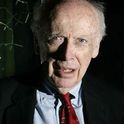The easiest and cheapest way to get to the Cambridge University Hospitals from here is to drive over the hill to the Park and Ride, leave the car and catch a bus. The hospital is the first stop. This knowledge wouldn’t have been useful back in the days when I was driving my husband in for his appointments, because he couldn’t have managed the walk from the car to the bus and from the bus to the door. But it’s useful to me now. Now that I’m going in as a patient, that is. Not as a patient’s wife and advocate, not as a priest visiting parishioners, not as someone learning hospital chaplaincy, as I once did, and have the certificate somewhere to prove it. When I go into hospital these days, it’s generally as someone whose innards are being investigated.
I go in by myself, just as I do when going in to see a parishioner. There’s nobody to worry about me. This is liberating. My hospital chaplaincy training, Clinical Pastoral Education, aimed to get trainee clergy to pay attention to the memories and personal defences we were bringing with us into the ward and learn to put them to one side, the better to understand what we were being told by the patients we visited—and to notice what was being said in the silences. Now I’m finding it disconcerting to turn that model on its head and notice how I’m responding in this new role.
And it is a role. I appreciate now how well my husband took it on. The summary of his appointment with the Macmillan nurse invariably began with the phrase, “This pleasant gentleman.” Not everyone gets this compliment, I’m told. When Geoffrey was in to have his gallbladder removed, he began chatting with the man in the next bed, a young soldier who’d sustained an injury on exercises. Before we knew it, the soldier, drip stand and all, was making an excursion to the main concourse to fetch Geoffrey a coffee: an extra tall skinny latte with a shot of vanilla, to be precise.
A few years later, in for a week with his multiple co-morbidities, Geoffrey discovered that the lady who brought round the menus had a humanities degree from the University of Lagos and they chatted about Wole Soyinka and Ngũgĩ wa Thiong’o, both of whom Geoffrey had known in Leeds, and Chinua Achebe and Christopher Okigbo, whom he’d known in Ibadan. He never grumbled. He endeared himself to the staff, though with doctors he was more guarded, coming, as he said, from the class that automatically doffs and twists its cap in the presence of the medical profession.
It wasn’t just for the orange juice or the latte: it was also for the sense of human connection you need when you’re lying there feeling helpless
His family wondered out loud whether he might be being just a bit manipulative, particularly when the soldier returned with the latte. We were unduly harsh. Geoffrey had learned his survival skills as the only child on a ward in the Bromsgrove Cottage Hospital in 1943, when he had his mastoid surgery and woke up with half his hearing gone and a roaring in his head that never went away. He needed friends there, and he made them. It wasn’t just for the orange juice or the latte: it was also for the sense of human connection you need when you’re lying there feeling helpless in the strange self-contained world of the hospital.
At the end of a long day, padding along a corridor in my socks, pants and a hospital gown, my sympathies are with the radiographer, on her last thread of energy and patience, who had to find a free machine and accompany me to it. So I listen to her. Why can’t I just be a patient? My collar is with the rest of my stuff, half a mile down the corridor, in a locker. But still, I’ve gone into chaplaincy mode. What’s going on here? Is it the indelible nature of vocation?
When I was doing my chaplaincy training at St Elizabeth’s Hospital in Boston, one of the patients I saw was an old-school Catholic priest. As I went into his room, he was soaking his dropsical leg in a foot-bath and needed a hand to lift it out and dry it. He turned out to be a prison chaplain. I can only remember fragments of the meeting: his hugely swollen leg, the pattern on his white and blue hospital gown, which was tied at the back, and what he said to the young murderers and old gangsters on his watch: “I tell them that they were made for glory.”













